Are you addicted to cycling?
In the realm of competitive cycling, the line between dedication and addiction can be ultra-fine. Sports psychologist Dr Josephine Perry searches for a meaningful distinction and offers advice on how to stay on the healthy, happy side of the divide
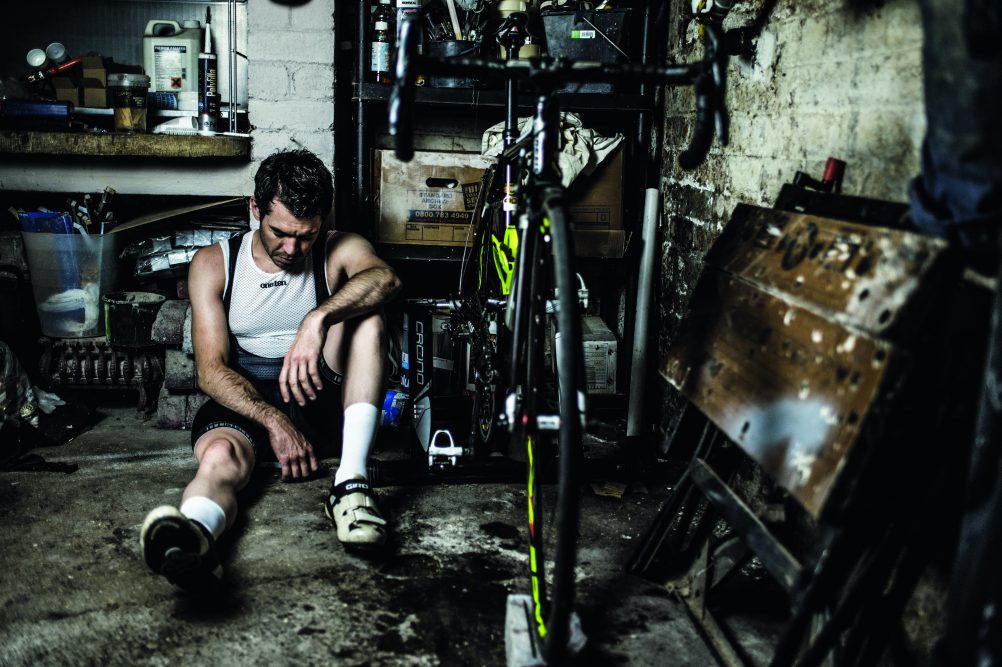
All photos by Russ Ellis

As a regular cyclist, it’s very likely you take a close interest in performance and have a strong drive to improve coupled with a willingness to push yourself hard in training and racing.
Sometimes you probably feel under attack from family or colleagues who question or tease you about your ‘obsessive’ cycling habit. You no doubt retaliate by citing the many benefits of cycling: the brilliant friendships, massive health improvements, toned body and all the places you get to explore on your bike.
>>> Seven ways to find great new places to ride
But do your critics occasionally have a point? Does your relentless drive to improve sometimes go too far and place you in danger of crossing the thin line from dedication into addiction?
Addiction to cycling is defined by an incessant internal need to train hard every day without taking the time off that you need to rest and recover — not to mention attend to other commitments in your life. In other words, addiction is defined by harm.
>>> Hot weather cycling: five tips to help you keep your cool
You ignore the pleas from family or friends to cut back. Your priorities get rearranged, and nothing is allowed to come between you and your bike.
Get The Leadout Newsletter
The latest race content, interviews, features, reviews and expert buying guides, direct to your inbox!
Once this line is crossed, the benefits of cycling begin to diminish. The addicted cyclist feels more aches and pains, becomes prone to physical injuries, regular colds and hidden illnesses.
They can also become susceptible to burnout and all that comes with it: decreased performance, low mood, changes in appetite, difficulty sleeping and generally a feeling that the outcomes are not matching the intensity of the effort being put in.
For a cycling addict, this loss of form and the feelings of difficulty can be devastating.
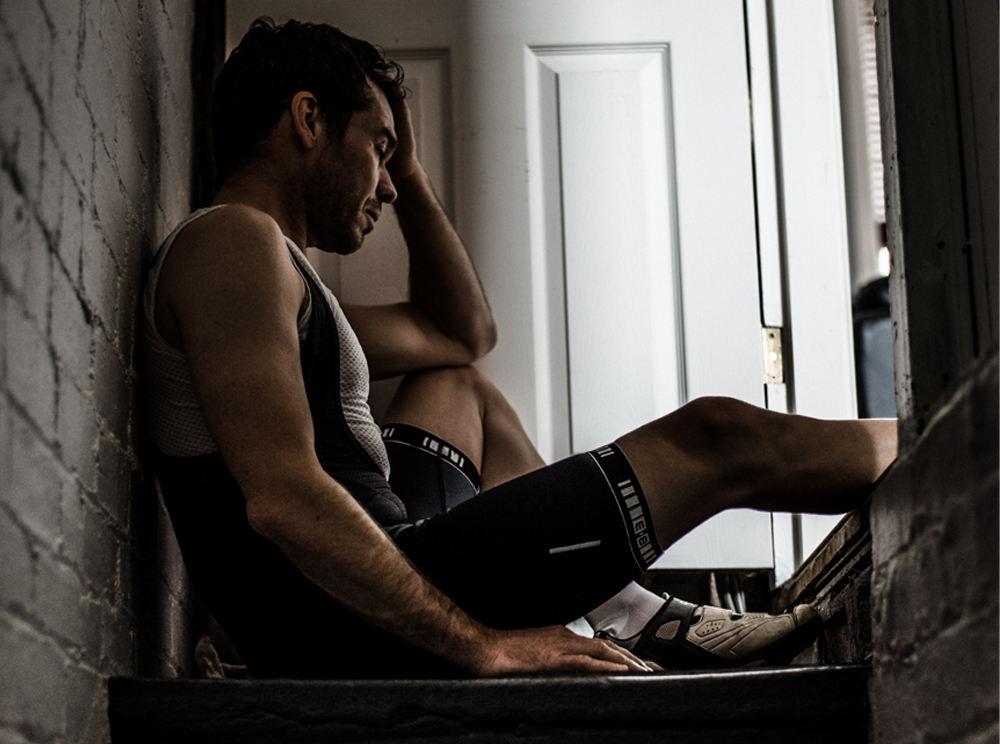
Cycling addict? Take the self-test
Respond to the following six statements to help determine whether your devotion to cycling is tipping over into addiction territory.
Dr Griffiths and his colleagues have drawn up six statements to help you understand if you are at risk from exercise addiction.
If you answer Agree or Strongly Agree to most or all of them, you need to consider whether your commitment to cycling may have crossed the line, putting you at risk of an addiction.
- I would find it hard to cope without exercise in my life
- Conflicts fairly often arise between me and my family about the amount of exercise I do
- I use exercise as a way of changing my mood
- Over time I have increased the amount of exercise I do in a day
- If I have to miss an exercise session, I feel moody and irritable
- If I deliberately cut down the amount of exercise I do, I always end up reverting back to my old ways and exercising as often as I did before.
Make the time after training count
Truly addictive?
Certain sceptics scoff in disbelief about addictions related to habits rather than substances such as alcohol. They claim that, unlike substances, behaviours can be moderated, are enjoyed by millions in an unproblematic way, and therefore cannot be described as truly addictive.
>>> Tips for effective rest and recovery after cycling
While there is still much research to be done in this area, biological and genetic studies are showing that exercise can become an addiction just like any other.
A key feature of exercise addiction is using exercise to control negative mood states. Research in 2009 in the Journal of Psychophysiology found that those suffering with certain negative mood states exhibit greater activity in the right frontal electrode sites in the brain, and that exercise addiction risk could be predicted from scanning the brain and spotting this frontal asymmetry.
>>> Hot weather cycling: five tips to help you keep your cool
A study published in the Current Pharmaceutical Design Journal in 2013 found that rats used exercise to activate the dopamine reward system so they could reduce stress. Other studies have found that exercising releases endorphins and cannabinoids which give us a high.
After a while, we need to do more and more each time to reach that initial high, potentially making us dependent on the exercise. Further, genetic studies have suggested that certain genes may be responsible for prompting a preference for rewarding behaviours such as exercise.
Sleep better, ride better
Another way to determine whether you’re addicted rather than just committed is to consider the feelings that arise when you’re unable to exercise for whatever reason.
Research published in January in the Physiology and Behaviour Journal found those with exercise addiction symptoms showed signs of depression, confusion, anger, fatigue and lower mood when they had been forced not to exercise for two weeks.
>>> Why amateurs shouldn’t try to pedal like Chris Froome
Cyclist Louise Gallacher says: “If I miss an exercise session, I feel cheated, depressed, see it as a missed opportunity and have negative thoughts about my fitness levels. I know rest days and recovery are needed, but it’s hard to stop exercising.”
Mark Higham feels the same: “If I miss a session, I feel frustrated and unhappy. I only cut down during rest or easy weeks or as part of an off-season, but then it is never longer than a week or a few days, as I get bored and irritable if I don’t do something.”
Again, the key determinant is harm: is the compulsion to exercise having a negative impact on your life? Do these riders really have a problem?
>>> Can you buy your way to a fitter you?
Dr Mark Griffiths, Professor of Behavioural Psychology at Nottingham Trent University, is convinced that behaviours can be addictive but is cautious about imposing the label: “You can’t define whether someone is addicted by the behaviour they display. It is all to do with the context in their life. It is not about the amount they do but the impact it has on them.
“A healthy enthusiasm adds to their life. An addiction takes away from it. If you have no dependants and both you and your partner enjoy the sport and there is no conflict, it would not be classed as an addiction. If family conflict becomes a factor, the exercise habit becomes fraught with complications.”
>>> Should you eat less meat to boost your cycling?
So, even though Gallacher and Higham feel they need to exercise and have withdrawal feelings when they don’t, their cycling doesn’t appear to be causing conflict or physical harm, so regarding it as an addiction would be unhelpful and inaccurate.
Researchers have yet to uncover exactly how prevalent exercise addiction is. In the general population, it is not common, with most academics agreeing it is around two to three per cent.
However, in specific sporting populations, the figure is likely much higher. There has never been a study specifically on cycling addiction but researchers have found that about seven per cent of those who study sport or play in a team are at risk of exercise addiction, rising to 10 per cent for individual sports such as cycling, 20 per cent for triathletes and up to 27 per cent for ultra-runners.
>>> This is what you have to eat to compete in the Tour de France
What is it about these endurance sports, or those attracted to them, that means they have the greatest risk of addiction? Research published in 2014 in the Journal of Clinical Sport Psychology found that as training hours and race distances rose, so did an athlete’s risk of addiction.
Other research has found the risks are highest in those exercising over five times a week. With the average amount of training for serious amateur cyclists being around 10 hours a week, they are certainly in the higher-risk category.
Who’s most at risk?
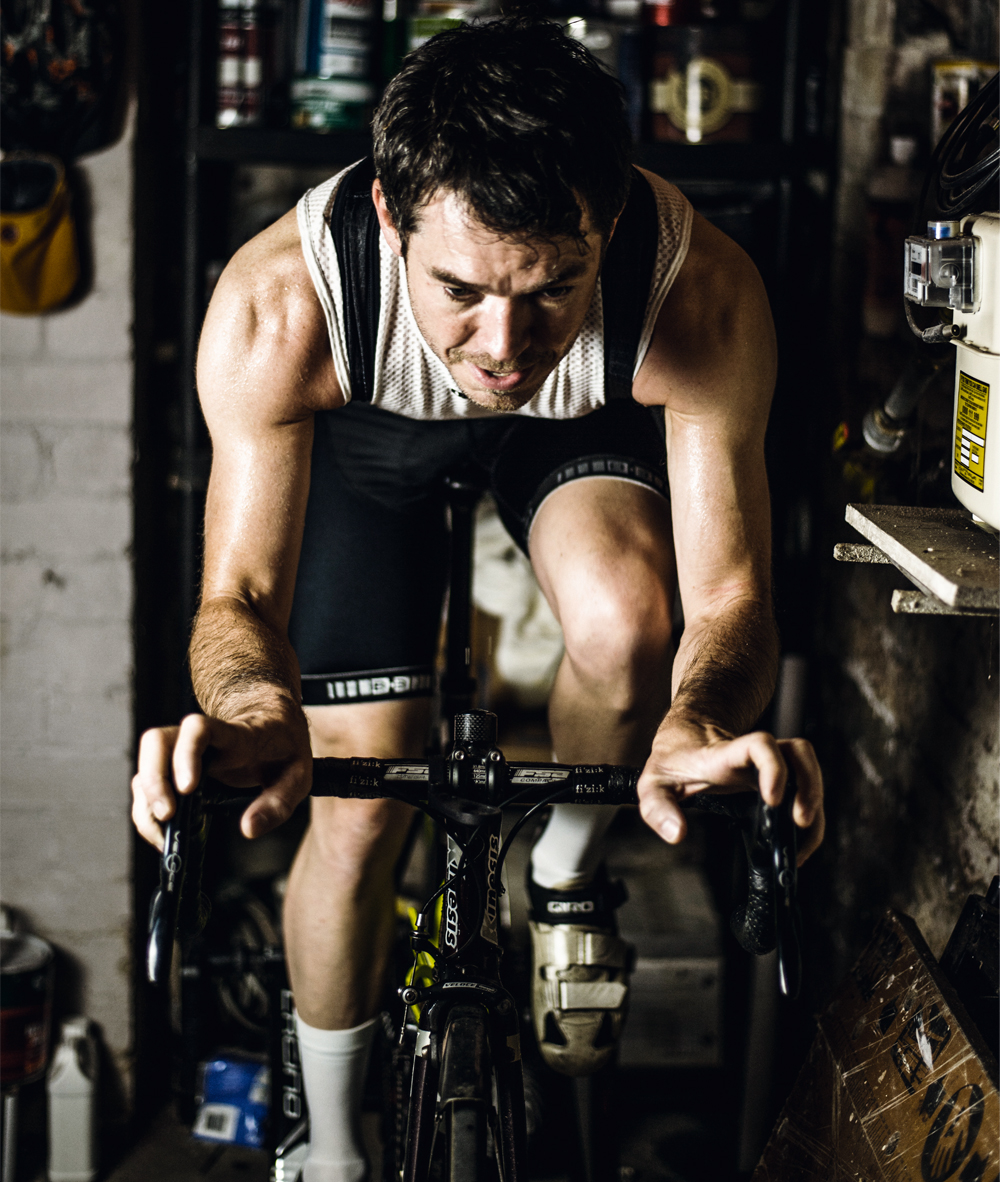
It is not just the amount of training that can increase the risk. Researchers have assessed which habits or personality traits are most common in those with exercise addiction.
The highest risks are found in those with perfectionistic traits, those who desire to control their bodies, athletes seeking excitement and those who are more neurotic, extrovert and conscientious.
Griffiths says: “Some people have their risk built into them. The at-risk type is an all-or-nothing person. Some cyclists will be those Type-A achievers who are reward-orientated to do the best they can, in whatever they do. If they take up a sport, those personality traits previously used to be successful and focused in other areas such as work go into the new area.”
>>> How to eat optimally for cycling as you grow older
There are a number of signs that can help you spot if your attitude towards cycling is unhealthy. The most obvious one is when cycling becomes the most important activity in your life, dominating your thinking, feelings and behaviour.
“If you need to ride more to get the same mood benefit that you used to, your mood changes significantly or you feel physical effects when you can’t cycle, you may also be at risk.
"Finally, if you are fighting others or start to resent your family, job, social life, hobbies or other interests getting in the way of you riding, you need to consider if you have crossed the line.
"Those addicted to cycling are more likely to get into debt to fund their habit, become excessively controlling over their eating to regulate weight and competitiveness, and find it hard to balance work, social and family commitments with training.”
Get to know your training zones
Treatment
If your cycling addiction comes from the physical and mental high you experience from the exercise, it can be very difficult to recover. Griffiths warns: “Primary addicts, who are actually addicted because they love their sport, will find it is very hard to give up; telling them they can’t continue will be stressful in itself.”
Secondary addicts may be trying to lose weight or to escape negative, unpleasant feelings or difficulties in their lives, using cycling to control their thoughts.
>>> How to deal with a setback in your cycling
“These athletes,” says Griffiths, “are using exercise as a coping mechanism. The key here is finding out why they are doing it to such an extent in the first place. Most will find their addiction is symptomatic of something else.”
Treatments for both groups tend to be based on the cognitive-behavioural approach. The addicted cyclist would be advised to see a cognitive behavioural therapy psychologist to help them work through their addiction. They would be guided to identify goals that motivate them and be helped to find safe and reasonable ways to reach those goals.
A dose of reality can help here too; the athlete will be prompted to reflect on their training habits and the impacts.
So it is not just about how many hours you are doing on the bike, how much you love your riding, or how many bikes you have; what matters is the impact on your life.
If your work and family life allows it without conflict, and you’re not feeling over-stressed or over-tired, then your commitment to cycling is just that — a commitment.
If you are suffering from continual injuries and not recovering fully, have found yourself feeling burnt out, dips in mood, feel obliged to miss family or social events for training, resulting in arguments, then you need to ask yourself seriously: am I addicted?

Thank you for reading 20 articles this month* Join now for unlimited access
Enjoy your first month for just £1 / $1 / €1
*Read 5 free articles per month without a subscription

Join now for unlimited access
Try first month for just £1 / $1 / €1
Michelle Arthurs-Brennan the Editor of Cycling Weekly website. An NCTJ qualified traditional journalist by trade, Michelle began her career working for local newspapers. She's worked within the cycling industry since 2012, and joined the Cycling Weekly team in 2017, having previously been Editor at Total Women's Cycling. Prior to welcoming her first daughter in 2022, Michelle raced on the road, track, and in time trials, and still rides as much as she can - albeit a fair proportion indoors, for now.
Michelle is on maternity leave from April 2025 until spring 2026.
-
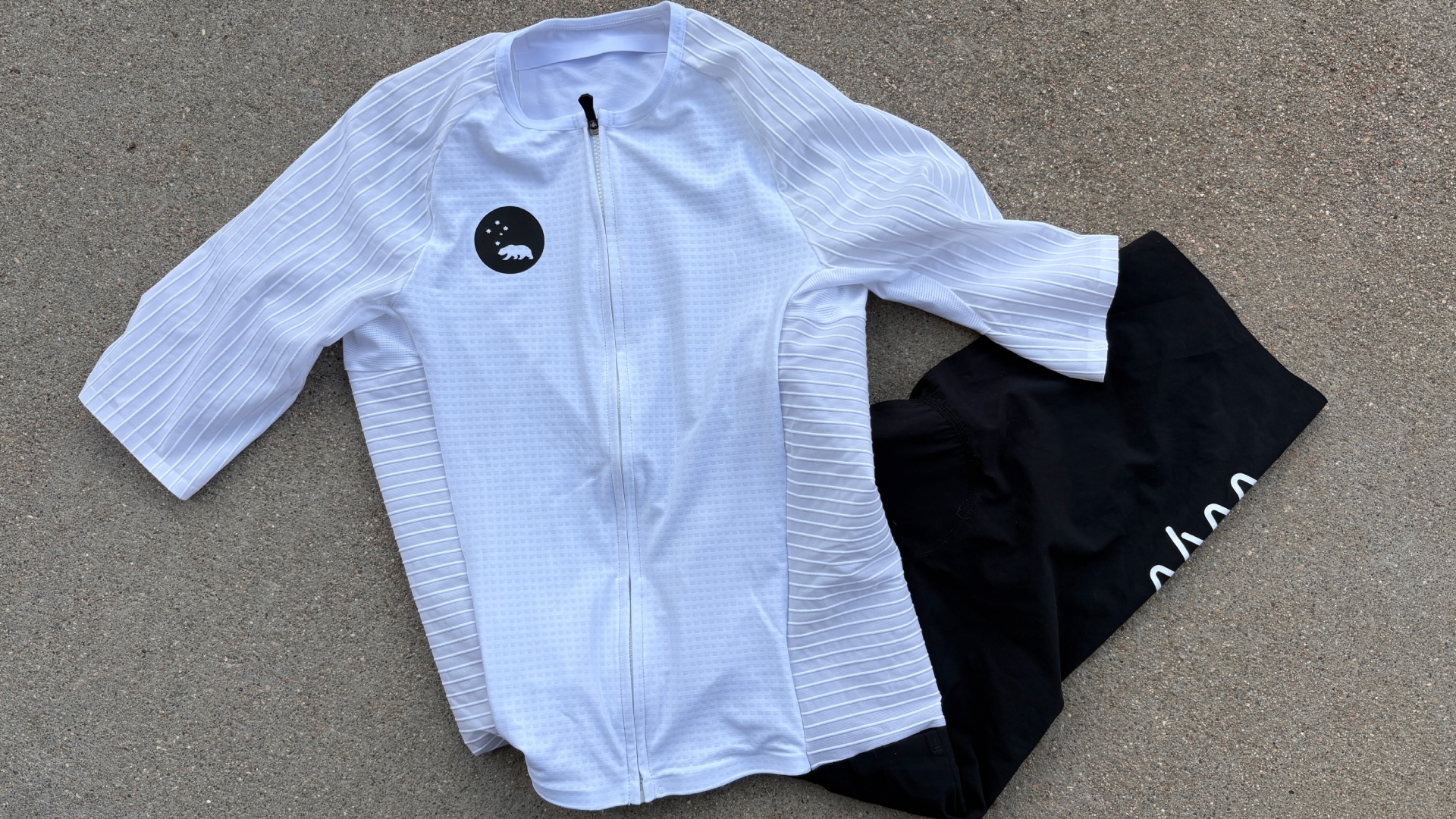 "Like a second skin” - the WYN Republic CdA triathlon suit reviewed
"Like a second skin” - the WYN Republic CdA triathlon suit reviewed$700 is a substantial investment in a Tri Suit, and it is, but you’ll definitely feel fast in it
By Kristin Jenny
-
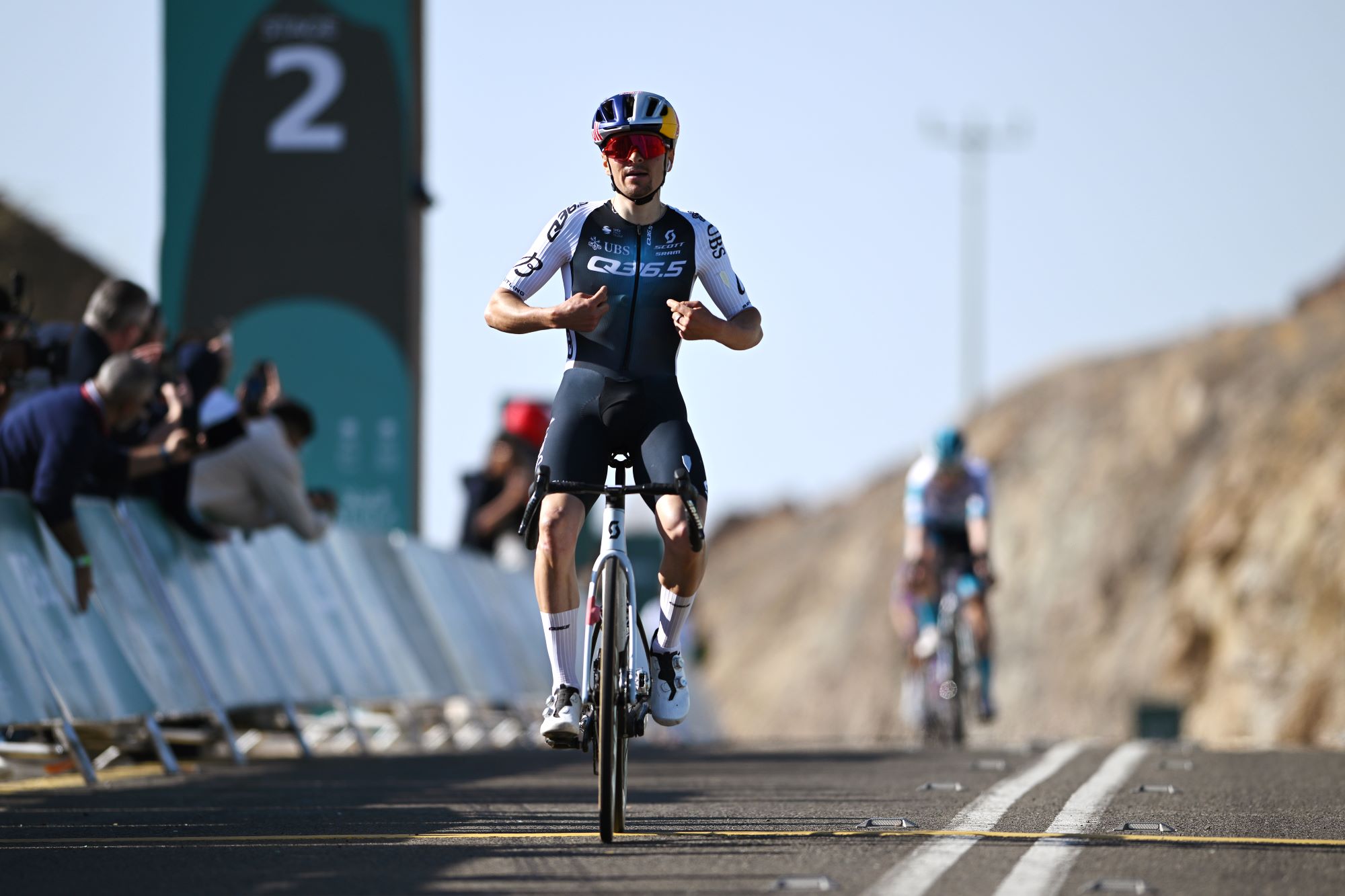 What does Q36.5 mean? We asked the people behind the Italian kit brand that sponsors Tom Pidcock's team
What does Q36.5 mean? We asked the people behind the Italian kit brand that sponsors Tom Pidcock's teamQ36.5's Luigi Bergamo and Lodovico Pignatti Morano take on Cycling Weekly's Q&A
By Tom Thewlis